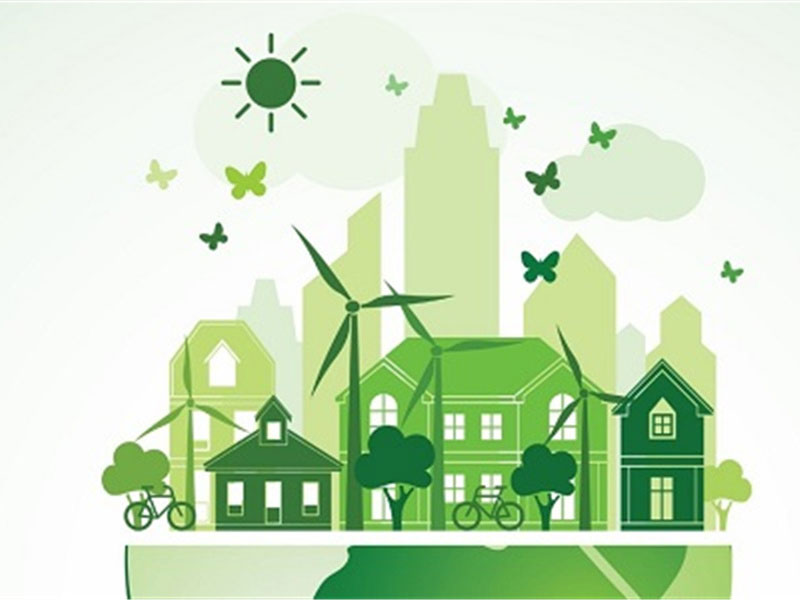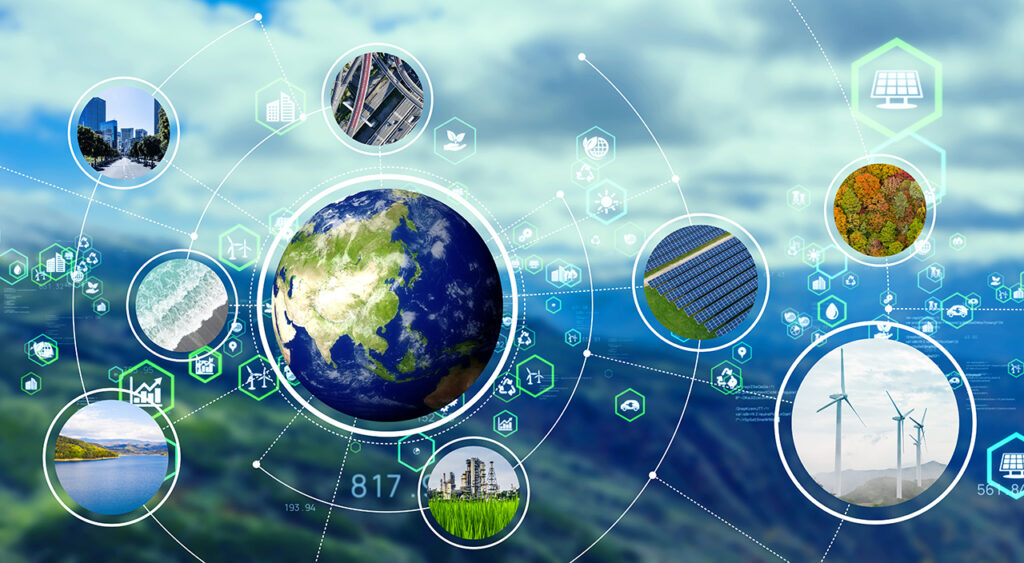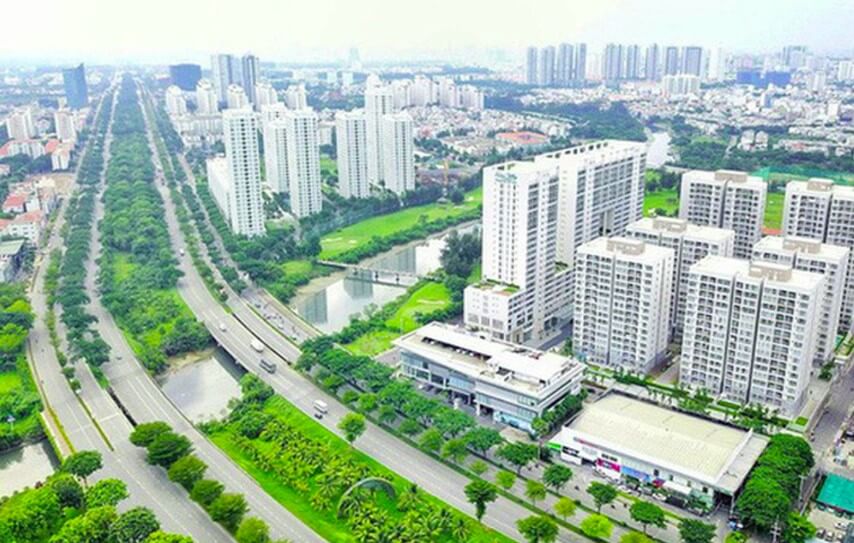Environmental monitoring, environmental information and data in Vietnam

Vietnam law has regulations on environmental monitoring, environmental information and data. Let’s find out this issue with lawyer X through the following situation: “Dear Lawyer! I want to ask what are general regulations on environmental monitoring in Vietnam? What shall the environmental monitoring system cover? Thanks for your advice!”
Legal grounds
- Vietnam law on environment protection
General regulations on environmental monitoring
– Environmental monitoring also includes waste monitoring and is carried out on an automatic, continuous or periodic basis or at the request of a competent authority.
– Investment projects, businesses, dedicated areas for production, business operation and service provision and industrial clusters that release waste into the environment must carry out monitoring as prescribed in Articles 111 and 112 of this Law and in accordance with environmental technical regulations.
– Entities are encouraged to engage in environmental monitoring and provide information on environmental quality to the community as prescribed by law. Such entities shall take legal responsibility for the accuracy of the information provided.
– Environmental monitoring must ensure and control quality and give accurate and reliable monitoring results.
– Vehicles and equipment used for environmental monitoring must be verified and calibrated in accordance with regulations of law on measurement.
Regulations on Environmental monitoring system
– The environmental monitoring system shall cover:
+ National environmental monitoring, which is a network of background and impact environmental monitoring stations and locations serving the monitoring and providing information on background and impact environmental quality in inter-regional, inter-provincial and transboundary areas.
+ Provincial environmental monitoring, which is a network of background and impact environmental monitoring stations and locations serving the monitoring and providing information on background and impact environmental quality in areas within a province.
+ Environmental monitoring in service of field and sector management prescribed in Article 109 of this Law;
+ Environmental monitoring for investment projects, in businesses, dedicated areas for production, business operation and service provision and industrial clusters;
+ Biodiversity monitoring in wildlife sanctuaries.
– Organizations joining the environmental monitoring system include:
+ Environmental monitoring authorities;
+ Organizations in charge of on-site sampling and sample measurement;
+ Environmental sample testing and analysis laboratories;
+ Organizations verifying and calibrating environmental monitoring equipment;
+ Organizations managing and processing environmental monitoring data and preparing environmental monitoring reports.
– The environmental monitoring system must be must be synchronized and interconnected to create a consistent and comprehensive network nationwide.
– The comprehensive planning for national environmental monitoring is the technical and specialized planning containing the following main contents:
+ Analyzing and assessing current state of the national environmental monitoring network; system of environmental testing and analysis laboratories and environmental monitoring data management system;
+ Viewpoints, objectives and selected scheme for comprehensive planning for national environmental monitoring in conformity with environmental zoning, monitoring orientations and environmental warning in the environmental protection planning;
+ National environmental monitoring network, including orientations for environmental component monitoring points, parameters and frequency nationwide and automatic monitoring stations; orientations for development of system of environmental testing and analysis laboratories and environmental monitoring data management system;
+ List of national environmental monitoring projects;
+ Orientations for connection of national environmental monitoring network, database and data with provincial environmental monitoring network and connection of environmental monitoring network;
+ Roadmap and resources available for the implementation of the planning.
Regulations on Objects subject to environmental monitoring
– Environmental components to be monitored include:
+ Water, including surface water, groundwater and seawater;
+ Ambient air;
+ Soil and sediments;
+ Biodiversity;
+ Noise, vibration, radiation, light.
– Waste sources, waste and pollutants to be monitored include:
+ Wastewater and exhaust gases;
+ Controlled industrial waste for identifying hazardous waste as prescribed by law;
+ Radioactivity;
+ Persistent pollutants that are released into and accumulate in the environment;
+ Other pollutants.

Regulations on Responsibility for environmental monitoring
– The Ministry of Natural Resources and Environment shall:
+ direct, provide guidance on and inspect environmental monitoring nationwide; organize the execution of the national environmental monitoring programs including environmental monitoring programs for inter-provincial rivers and lakes, sea, key economic regions, inter-regional, inter-provincial and transboundary areas and environment in geographically distinct zones; carry out biodiversity monitoring in wildlife sanctuaries;
+ Formulate, appraise and submit to the Prime Minister the comprehensive planning for national environmental monitoring for approval in accordance with regulations of law on planning;
+ provide technical guidance on building national and provincial environmental monitoring systems; biodiversity monitoring.
– The Ministry of Science and Technology shall organize the execution of radioactivity monitoring programs including programs for monitoring radioactive components in the environment.
– The Ministry of Agriculture and Rural Development shall organize the execution of environmental monitoring programs serving agricultural management including water, soil and sediment monitoring programs serving the purposes of irrigation, fishing, aquaculture, agriculture, forestry and salt production.
– The Ministry of Health shall organize the execution of occupational environment monitoring programs in the workplace.
– The Ministry of National Defense shall participate in offshore water monitoring and transboundary environmental monitoring.
– Provincial People’s Committees shall organize the execution of environmental monitoring programs within their provinces, submit annual environmental monitoring reports to provincial People’s Councils and the Ministry of Natural Resources and Environment.
Conditions for environmental monitoring
– National environmental monitoring programs, local environmental monitoring programs and environmental monitoring programs of businesses and service providers prescribed by regulations of law on environmental protection and other monitoring activities serving state management of environmental protection in accordance with regulations on environmental monitoring must be carried out by organizations certified as eligible to provide environmental monitoring services.
– Organizations that satisfy requirements concerning personnel and equipment for environmental monitoring and technical conditions applied to laboratories and adopt environmental monitoring methods shall be issued with the certificate of eligibility to provide environmental monitoring services. Certificate holders must operate within the certified scope.
– Entities carrying out environmental monitoring on a periodic, regular and continuous manner in order to provide and publish information about environmental quality to the community must comply with technical requirements for environmental monitoring as prescribed by law.
– The Government shall elaborate this Article.
Regulations on Wastewater monitoring
– Subjects required to carry out automatic and continuous wastewater monitoring include:
+ Dedicated areas for production, business operation and service provision and industrial clusters that discharge wastewater into the environment;
+ Investment projects and businesses involved in a type that is likely to cause environmental protection with an average or higher flow rate of wastewater discharged into the environment;0}
+ Investment projects and businesses not involved in a type that is likely to cause environmental protection with a large flow rate of wastewater discharged into the environment.
– Subjects required to carry out periodic wastewater monitoring include:
+ Dedicated areas for production, business operation and service provision and industrial clusters that discharge wastewater into the environment;
+ Investment projects and businesses that discharge wastewater into the environment at a large flow rate.
– The automatic and continuous wastewater monitoring must comply with regulations on environmental monitoring techniques. Data of the monitoring system must be directly transmitted to the provincial specialized environmental protection authority.
– The periodic wastewater monitoring must comply with regulations on time, frequency and parameters; parameters that have been automatically and continuously monitored are not required to be periodically monitored.
– Every provincial specialized environmental protection authority shall:
+ monitor automatic and continuous wastewater monitoring data; assess automatic and continuous wastewater monitoring results and compare them with permissible limits of pollutants specified in the environmental technical regulation on wastewater; supervise and inspect the correction if the monitoring data transmission is interrupted; find monitored parameters which exceed the permissible limits and propose remedial measures as prescribed;
+ aggregate and transmit data on automatic and continuous monitoring carried out within the province to the Ministry of Natural Resources and Environment as prescribed.
– Subjects other than those specified in Clauses 1 and 2 of this Article are encouraged to monitor wastewater to supervise their own wastewater treatment systems and equipment.
– The Government shall elaborate subjects required to carry out wastewater monitoring; parameters and roadmap for carrying out automatic and continuous wastewater monitoring; time and frequency of periodic wastewater monitoring.
– The Minister of Natural Resources and Environment shall impose regulations on wastewater monitoring techniques.
Regulations on Industrial dust and exhaust gas monitoring
– Subjects required to carry out automatic and continuous monitoring of industrial dusts and exhaust gases include investment projects and businesses likely to cause air pollution with large flow rates of dusts and exhaust gases released into the environment.
– Subjects required to carry out periodic monitoring of industrial dusts and exhaust gases include investment projects and businesses discharging dusts and exhaust gases into the environment at large flow rates.
– The automatic and continuous monitoring of industrial dusts and exhaust gases must comply with regulations on environmental monitoring techniques. Data of the monitoring system must be directly transmitted to the provincial specialized environmental protection authority.
– The monitoring of industrial dusts and exhaust gases must comply with regulations on time, frequency and parameters as prescribed by law. The parameters that have been automatically and continuously monitored are not required to be periodically monitored.
– Every provincial specialized environmental protection authority shall:
+ monitor data on automatic and continuous monitoring of industrial exhaust gases; assess results of automatic and continuous monitoring of industrial exhaust gases and compare them with permissible limits of pollutants specified in the environmental technical regulation on exhaust gases; supervise and inspect the correction if the monitoring data transmission is interrupted; find monitored parameters which exceed the permissible limits and propose remedial measures as prescribed;
+ aggregate and transmit data on automatic and continuous monitoring carried out within the province to the Ministry of Natural Resources and Environment as prescribed.
– Subjects other than those specified in Clauses 1 and 2 of this Article are encouraged to monitor industrial dusts and exhaust gases to supervise their own dust and exhaust gas treatment systems and equipment.
– The Government shall elaborate subjects required to carry out monitoring of industrial dusts and exhaust gases; parameters and roadmap for carrying out automatic and continuous exhaust gas monitoring; time and frequency of periodic monitoring of industrial dusts and exhaust gases.
– The Minister of Natural Resources and Environment shall impose regulations on industrial dust and exhaust gas monitoring techniques.
Environmental monitoring data management
– The Ministry of Natural Resources and Environment shall manage national environmental monitoring data; establish environmental monitoring database to be incorporated in the national environmental information system and database; integrate environmental monitoring data of Ministries, ministerial agencies and local authorities, publish information about national environmental quality; provide professional guidance on and technical assistance in local environmental monitoring data management.
– Ministries and ministerial agencies shall set up environmental monitoring database within their power and integrate it into the national environmental monitoring database.
– Provincial People’s Committees shall manage environmental monitoring data; establish environmental monitoring database within their provinces in a manner that is consistent, synchronized and interconnected with the national environmental information system and database and publish information on local environmental quality on the basis of the local environmental monitoring results.
– Investment projects, businesses, dedicated areas for production, business operation and service provision and industrial clusters shall manage waste monitoring data and make waste monitoring results publicly available as prescribed by law.
Regulations on Environmental information
– Environmental information consists of:
+ Information on pollutants, discharge of pollutants into the environment and sources of pollutants; environmental protection by investment projects, businesses and dedicated areas for production, business operation and service provision and industrial clusters;
+ Information about solid waste, hazardous waste, wastewater, exhaust gases and other types of waste prescribed by law;
+ Information about decision to approve appraisal results, EIARs, except for trade secrets and information classified as state secrets; matters concerning licensing, registration, certification and confirmation; results of inspection of environmental protection by investment projects, businesses and dedicated areas for production, business operation and service provision and industrial clusters;
+ Information about statistical indicators regarding environment, environmental quality and environmental pollution;
+ Information about natural heritage sites, natural ecosystems, species and genetic resources; wildlife sanctuaries and biodiversity conservation facilities; important wetlands;
– The collection, storage and management of environmental information shall comply with the following regulations:
+ Environmental information shall be collected in an accurate, adequate and timely manner;
+ Investment project/business owners shall regularly collect, store and manage the environmental information mentioned in Points a, b and c Clause 1 of this Article;
+ Ministries and ministerial agencies shall collect, store and manage environmental information under their management specified in Points d and dd Clause 1 of this Article;
+ People’s Committees at all levels shall collect, store and manage environmental information within their areas and as assigned;
+ The Ministry of Natural Resources and Environment shall collect and consolidate national environmental information.
– The provision and publishing of environmental information shall comply with the following regulations:
+ The State shall encourage entities to participate in providing environmental information;
+ Ministries, ministerial agencies and provincial People’s Committees shall provide environmental information which they collect, store and manage to the Ministry of Natural Resources and Environment through the environmental information system and database or submit reports as prescribed by law;
+ Investment project/business owners shall provide the environmental information mentioned in Points a, b and c Clause 1 of this Article to an environmental protection authority through the environmental information system and database or submit reports as prescribed by law;
+ Entities shall publish environmental information as prescribed on their websites or in another manner to facilitate access to information. The publishing of environmental information shall comply with regulations of this Law and other relevant regulations of law.
– The Government shall elaborate on contents and management of environmental information; procedures, time and method for providing and publishing environmental information.
Regulations on Environmental information systems and database
– Regarding environmental information systems:
+ The State shall introduce a policy to build and operate the environmental information system with the aim of developing a digital environmental platform and economy in the future;
+ The Ministry of Natural Resources and Environment shall build, manage and operate the national environmental information system; provide guidance on operation of ministerial, sectoral and provincial environmental information systems;
+ Ministries, ministerial agencies and provincial People’s Committees shall build, manage and operate ministerial, sectoral and provincial environmental information systems in synchronization with the national environmental information system.
– Regarding environmental database:
+ Environmental database means a collection of environmental information, is built, updated, stored and managed to meet the needs for access, provision and use from central to local government and serve the state management of environmental protection and provision of public environmental services;
+ The Ministry of Natural Resources and Environment shall build and manage the national environmental database; instruct other Ministries, ministerial agencies and provincial People’s Committees to organize the operation of their environmental database;
+ Ministries, ministerial agencies and provincial People’s Committees shall organize the operation of their environmental database; ensure that it is integrated, connected and interconnected with the national environmental database.
– The Government shall elaborate this Article.
Regulations on Online public environmental services
– Online public environmental services include public administrative environmental services, environmental information provision services and other public environmental services prescribed by law.
– The provision of online public environmental services shall comply with the following regulations:
+ Regulatory bodies that have the power to provide online public environmental services as prescribed by the Government must ensure connection, interconnection, convenience, simplicity and safety and serve the state management of environment.
+ The Ministry of Natural Resources and Environment and provincial People’s Committees shall operate and provide guidance on provision of online public environmental services ensuring the synchronization, connection and interconnection as prescribed by law.
Please see more:
- Instructions for exclusive registration of company logos in Vietnam
- Service of changing the legal representative of Vietnamese enterprises
Services of Lawyer X
Prestigious professional services: Firstly, the team of consultants and consultants for many years in the field of civil status, and customer support.
On-time: Certainly, with the motto “Get your lawyer right at your fingertips”, we ensure the service always performs on time. The rights and interests of customers always come first.
Cost: Besides, Lawyer X’s service costs are highly competitive; depending on the nature of the particular case. So, we want our guests to have the best possible service experience. Therefore, costs which guaranteed to be the most suitable and economical for customers.
Confidentiality of client information: Finally, all personal information of clients Lawyer X will be 100% confidential.
If you need any further information, please contact LSX Law firm: at +84846175333 or Email: [email protected]
Frequently asked questions
Environmental monitoring also includes waste monitoring and is carried out on an automatic, continuous or periodic basis or at the request of a competent authority.
Entities are encouraged to engage in environmental monitoring and provide information on environmental quality to the community as prescribed by law. Such entities shall take legal responsibility for the accuracy of the information provided.
The environmental monitoring system must be must be synchronized and interconnected to create a consistent and comprehensive network nationwide.
Conclusion: So the above is Environmental monitoring, environmental information and data in Vietnam. Hopefully with this article can help you in life, please always follow and read our good articles on the website: lsxlawfirm.com




